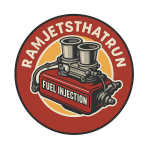Welcome to our Fuel Injection Tech Tips archive. Below are key topics every Rochester Fuel Injection owner should know about. Click any section to read the full, detailed guide.
Fuel Injection Calibration
Proper calibration ensures efficiency and drivability. Learn how to set enrichment stops, nozzle pressures, and idle mixture for peak performance.
👉 Read More »
Installation, Start-Up, and Maintenance
From ignition components to manifold sealing, correct installation practices prevent costly mistakes. Includes advice on spark plugs, torque specs, and startup tips.
👉 Read More »
Shipping a Fuel Injection Unit
Fragile components demand special care when shipping. See our proven double-boxing method to prevent shipping damage.
👉 Read More »
Road Testing vs. Stationary Test Engines
Why true road testing and dyno validation outperform test-stand calibration every time.
👉 Read More »
Cold Enrichment / Choke Design Problems
Understanding the weaknesses in GM’s original cold enrichment systems (1957–1965) and proven ways to improve reliability.
👉 Read More »
Modern Pump Gas Isn’t Good Enough
Why today’s pump gasoline fails in vintage FI units, and why racing fuel may be your only real solution.
👉 Read More »
1963–1965 Spider Design Problems
The infamous spider hub spring issue and its effects on idle and drivability—plus how to diagnose it.
👉 Read More »
Cranking Signal Valve (CSV) Starting Problems
Why CSV-equipped Corvettes often suffer starting woes, and the common causes behind rich mixtures and hard starts.
👉 Read More »
Homemade Fuel Injection Tools
Simple, low-tech tools that make calibration, distributor service, and seal installation much easier.
👉 Read More »
Camshaft Considerations
Which cam profiles work with Rochester FI—and which don’t. Includes GM’s classic “097 Duntov” and “30-30” cams.
👉 Read More »
Chevrolet Fuel Injection Distributors
A guide to the 12+ FI distributor designs used from 1957–1965, their strengths, weaknesses, and interchangeability.
👉 Read More »
The Shocking Truth About Calibration Accuracy
Why GM’s original specifications often lead restorers astray—and why dyno-based calibration is the only reliable method today.
👉 Read More »
FI Problems in the Ignition System
Many “fuel injection” issues trace back to ignition. Learn how to evaluate coils, ballast resistors, and distributor health.
👉 Read More »
Making a 1957 FI Unit Run Right
The toughest FI systems of all—the early 1957 designs—require extensive modifications and careful tuning to achieve reliability.
👉 Read More »
